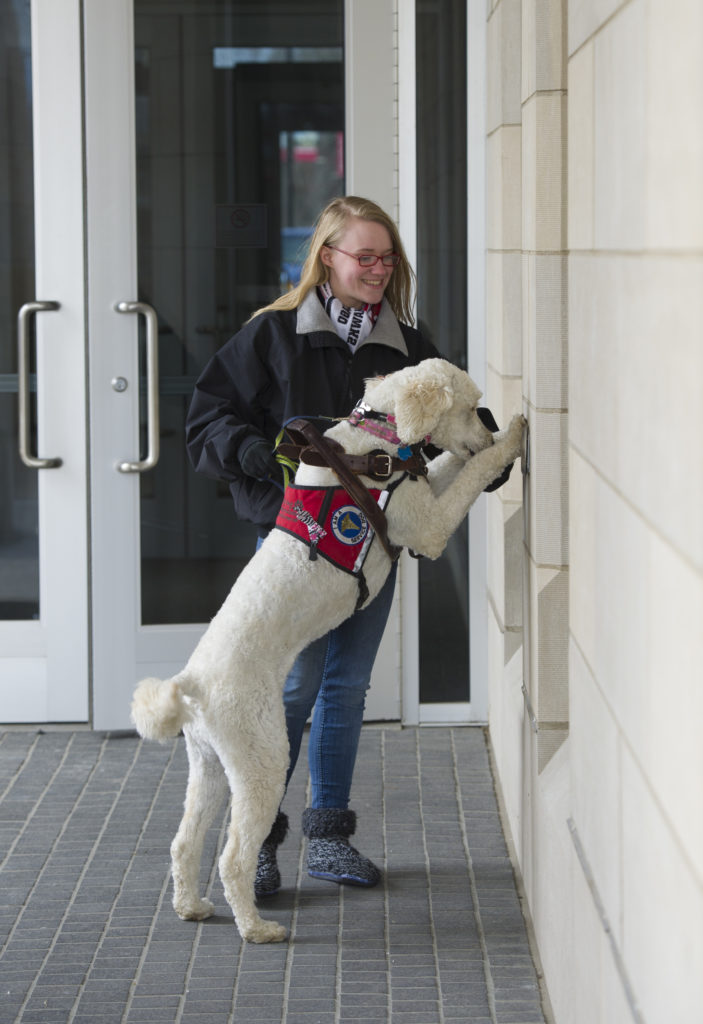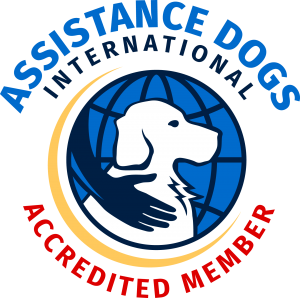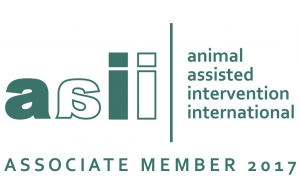PGI’s primary focus is centered around service, facility, and facilitator assisted service dogs.
SERVICE DOG:
Service dogs help by performing functions for a person that is limited by a disability. An applicant must be able to handle the dog independently in ALL public settings.
- Mobility impairments (wheelchair, unstable walking, balance difficulty)
- Medical Response (seizures, epilepsy)
- Visual impairment (partial sight)
- Hearing impairments
- Other physical disabilities
SKILLED FACILITATOR ASSISTED SERVICE DOG: Facilitator Assisted Service dogs help individuals with disabilities or other developmental delays and the parent/caregiver is certified to handle the dog. This type of dog is not certified to attend school with the individual. To qualify for a service dog a trained family member will handle the dog when it accompanies the applicant into public locations.
FACILITY DOG: Facility dogs are trained to perform animal assisted interventions at a facility: hospitals, medical facilities, nursing homes, and other facilities. In order to apply for a facility dog, you must work at the facility at least 30 hours per week with direct client contact. Our dogs must live in the home of a staff member and not at the facility.
- Pediatric outpatient rehab centers
- Veterans’ outpatient rehab centers
- Juvenile residential homes
- Grade schools, high schools, & colleges
- Nursing homes







